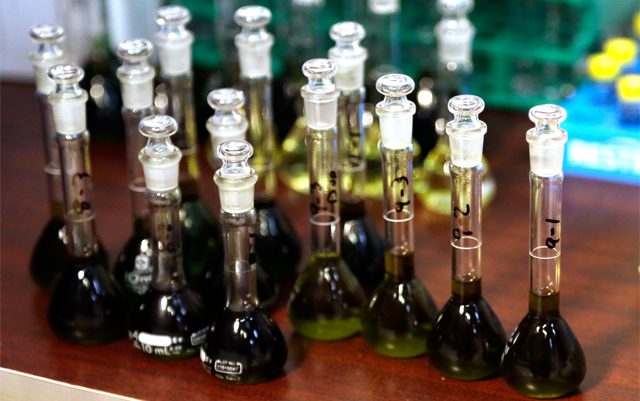The rise of CBD met a wall in 2019 when a slew of cities began halting businesses from selling infused foods or drinks. The prohibition came on the heels of a December 2018 U.S. Food and Drug Administration (FDA) ruling that declared infused foods or beverages as unlawful.
The edibles ban reached New York City in February 2019, causing a momentary panic among businesses in the five boroughs. With little warning time, smalls businesses feared losing their product and revenue. Eventually, the city relented, imposing a window before the ban would subsequently take place.
Little additional clarity came in the months after. Later that summer, lawmakers urged the FDA – as well as the Department of Health and Human Services (HHS) – to release its rules. So far, little has materialized. The most notable federal level movement since then has been the U.S. Department of Agriculture’s draft version of its domestic hemp production program.
In New York, Governor Cuomo provided the Empire State with additional clarity via a December 2019 bill that contained further details on the state’s CBD market. The bill addressed sales and production of CBD. The bill’s regulations have been described as one of the most comprehensive CBD laws in the U.S., and it has been touted for its strict testing and labeling regulations. Other areas of the market the legislation addressed included licensing for hemp growers and processors.
The Governor’s press office directed The Marijuana Times to a press release of the announcement. In the statement, the Governor is quoted as saying:
“The hemp industry in New York is exploding and with that growth comes a responsibility to regulate the industry in a way that helps ensure its long-term viability and protects consumers,” Governor Cuomo said. “By establishing a regulatory framework for producing and selling hemp and hemp extract we can set the industry on a path to continued growth in a smart, safe way that empowers both farmers and consumers.”
While Cuomo spoke of continued growth for the market, some highlighted the exclusion of edibles from the bill. Without addressing the matter, Cuomo continues to leave the state’s edibles producers and retailers in limbo.
The restrictive coverage of the law has left some wondering: Exactly what the next steps will be? And more so, questioning when a ruling can be expected. Just like last winter, when the ban was first announced, the industry is back to waiting on when the next morsel of information will be thrown their way.
Abe Cohn is the managing partner of Cohn Legal, PLLC, in Manhattan. The cannabis attorney explained that New York’s law reflects the FDA’s concern that CBD is medicinal in nature. Cohn said that CBD “…must, therefore, be subjected to rigorous testing by the FDA to determine safety levels before allowing its introduction into food items.” He added, “As these tests have not yet taken place, at least not sufficiently to satisfy the FDA, food items cannot include CBD.”
Tyler Russell runs a hemp practice in North Carolina and lobbies on behalf of the Hemp Roundtable. The Remedy Review legal writer explained that New York’s decision falls in line with most other states. Russell explained, “State lawmakers and regulators across the country have shown a general unwillingness to outpace the FDA on these issues and, instead, many are choosing to wait and see how (or if) the FDA will ultimately address the food and beverage sector of the market.”
Dr. Jeffrey L. Reynolds runs a Long Island-based community nonprofit, with services including abuse prevention and addiction care. Echoing Governor Cuomo’s recent State of the State address, Reynolds noted the importance of cannabis legalization during this session. Reynolds, who served on Governor Cuomo’s marijuana workgroup tasked with drafting last year’s legislation, said the current debate centers on more substantial focuses.
Reynolds explained, “Most discussions right now seem to be focused on the macro issues associated with recreational marijuana legalization, especially the handling of potential tax revenues given the state’s sizable budget deficit.”
While he believes that CBD-infused edibles are being overshadowed by the legalization debate at the moment, infused items should receive its time for consideration soon enough. Reynolds predicted that “as lawmakers get back to work and start introducing bills, I wouldn’t be surprised to see proposed CBD legislation that’s either wrapped into a larger package or done on a standalone basis.”
It isn’t clear just how much – or if at all – the CBD uncertainty has had on the market. That said, some growing cannabis ventures are steering clear to avoid any potential frustrations. Matt Aaron is the co-founder of CBD-infused coffee brand Crazy Calm. The Austin, Texas-based brand avoids the Empire State due to current legal grey areas, said Aaron.
“Ambiguity in regulation makes planning our wholesale expansion very difficult,” Aaron said. Currently, Crazy Calm sells its products in Texas, South Carolina, Wisconsin, Illinois and Arizona.
Aaron added that his discussions with people in the industry lead him to believe that no one is truly sure where state-to-state regulation will shake out at this time.
In New York, Cohn believes that New York won’t see any amends to the edibles restriction in future bills. Until the FDA leads with new guidance, he doesn’t forecast any change. “Ultimately, with the passing of this bill, the future of CBD-infused edibles is bleak indeed for New York companies,” he said.
Such a bleak outlook may extend across the country. As legal expert and writer Tyler Russell stated, “The FDA has promised it will develop a pathway forward for CBD. But, so far, it has delayed development and implementation of meaningful regulatory guidance for CBD products.” He added, “That continuing delay does a disservice to the industry and to the general public.






